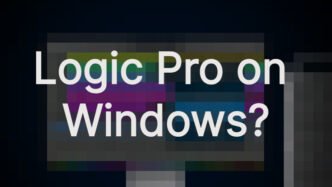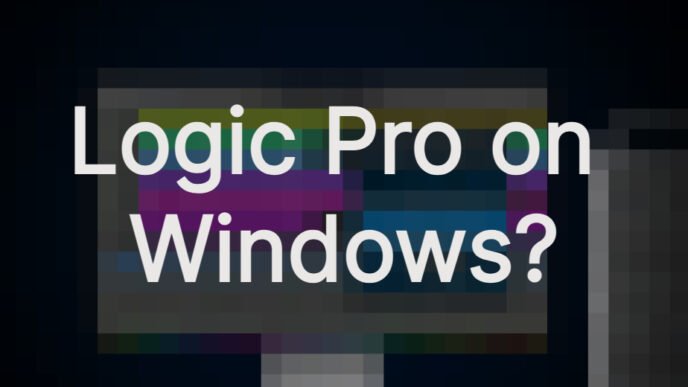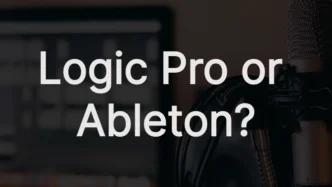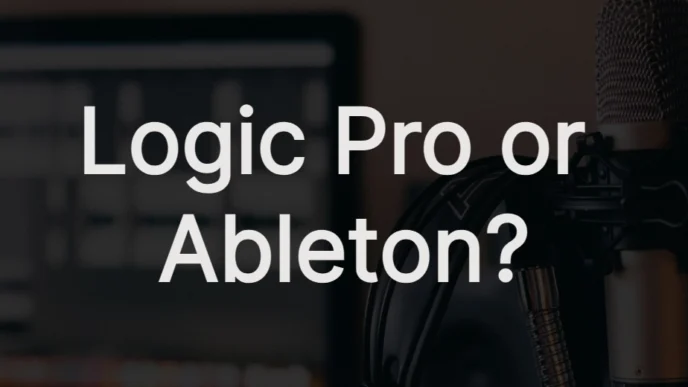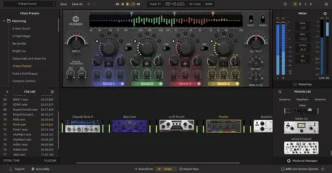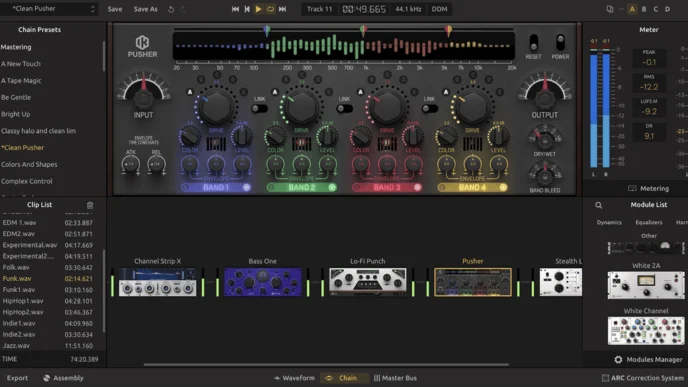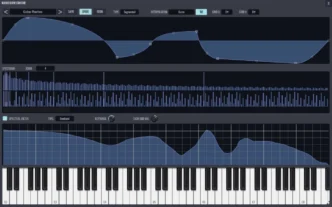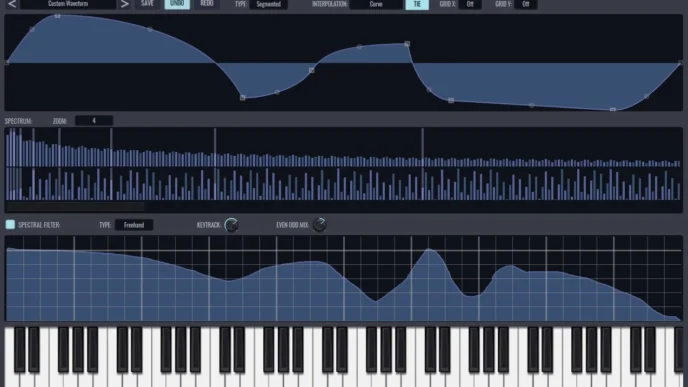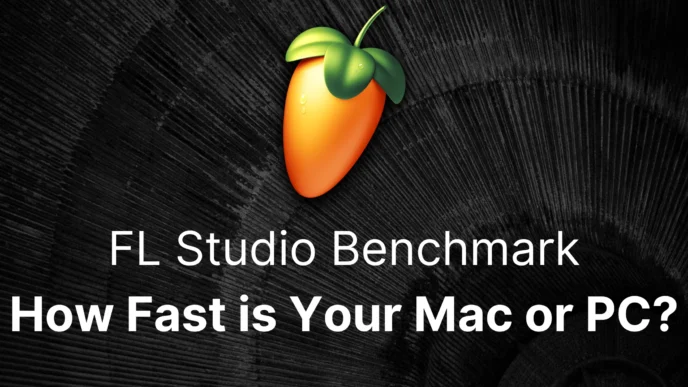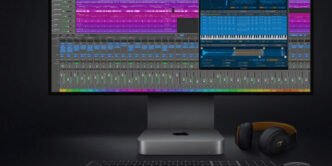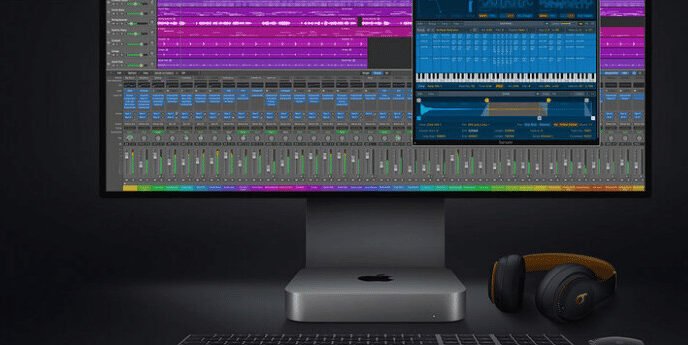The music business saw an increase in the use of AI technology. One of the best examples is the use of the ChatGPT language, an OpenAI technology platform for songwriting automation. ChatGPT can be used to understand human language. It can be used to change the musical way. This piece demonstrates how ChatGPT has been used in music and its potential impact and how it will help develop music.
Here is a list of different AI Tools for Music Production
| AI Tool | Free/Paid | Description |
|---|---|---|
| Voicify | Paid | Voicify is an AI-based music creation platform that allows users to generate custom songs with the voices of their favorite artists. These covers are currently extremely popular on platforms such as TikTok and YouTube. |
| Tunes For Tales | Free | Tunes for Tales is an AI tool that makes it easy to find the perfect song to fit a story or emotion. It uses machine learning to recommend up to five songs that best match the user’s narrative or feeling. |
| Staccato | Paid | Staccato is a generative AI music & lyrics company that helps musicians and lyricists overcome writer’s block, learn new ways to compose, or get inspired. |
| Splash | Free | Splash is an AI platform designed to bring the joy of music making to everyone. Its AI-powered tools allow users to create original music and sing lyrics to any melody. |
| Soundraw | Free & Paid | Soundraw is an AI music generator that helps creators to produce custom music for their projects. It is a powerful tool for creating music from scratch or customizing existing songs to fit the needs of your project. |
| Soundful | Free & Paid | Soundful is an AI Music Generator platform that enables content creators and music artists to create unlimited tracks and monetize music. It provides users with a unique and royalty-free way to generate music tracks with the click of a button. |
| Songtell | Free | Songtell is an AI-powered platform that helps users unlock the hidden depths of their favorite songs. With Songtell, users can discover the true meanings behind the lyrics they love. |
| Songmastr | Free & Paid | Songmastr is an AI-based automatic song mastering service that allows users to instantly master their songs to a commercial reference track. The service is free up to 7 songs per week, and is powered by the open source library Matchering. |
| Riffusion | Free | Riffusion is a tool designed to generate real-time music. It is especially suited to creating musical compositions that contain elements of folk, blues, funk, jazz, and other genres. |
| Raplyrics | Free | Raplyrics is an AI-driven tool for generating rap music punchlines. The tool uses artificial intelligence algorithms to create unique rap lyrics in the style of the user’s preferred artist. |
| Natural Language Playlist | Free | Natural Language Playlist is an AI-generated mixtape platform created by Abelardo Riojas, a Data Science graduate student. It uses Transformer language models to construct playlists based on user-specified queries. |
| Musico | Free & Paid | Musico is an AI-driven software engine that generates music based on the user’s input. It is capable of reacting to gesture, movement, code, or other sound. |
| LALAL | Free & Paid | LALAL.AI is an AI-powered vocal and instrumental tracks remover. It enables users to quickly and accurately split vocal and instrumental tracks from any audio file. |
| Infinite Drum Machine | Free | The Infinite Drum Machine is an AI-powered tool created by Kyle McDonald, Manny Tan, Yotam Mann, and other members of the Google Creative Lab. It allows users to create beats using sounds from the everyday world, with contributions from the Philharmonia Orchestra, London. |
| Emergent Drums | Paid | Emergent Drums by Audialab is an AI-powered music plugin that generates unique drum samples from scratch. By using state-of-the-art artificial intelligence, the plugin can generate an unlimited number of drum samples, all of which are royalty-free. Use promo code REFERRAL20 to get 20% off. |
| Ecrett Music | Free & Paid | Ecrett Music is an AI-driven music composing software designed to help content creators quickly and conveniently create royalty-free music. It features an intuitive interface so users need to know nothing about music to use it. |
| Clip.audio | Free | Clip.audio is an AI audio search engine that enables users to discover, generate, and remix audio with natural language queries and prompts. It searches through more than two million sounds found on the internet and is constantly being updated with new sound generation capabilities. |
| Boomy | Free | Boomy is an AI-powered music-making platform that allows users to create their own original songs with minimal effort. The platform is designed for both novice and experienced musicians, offering a range of features that make it easy to create music. |
| Artistator | Free | Artistator is a specialized AI tool that generates artist names based on a user’s favorite music genres. It is designed to help users create unique artist names that reflect their individual tastes. |
| Mubert | Free & Paid | Mubert is an innovative royalty-free music ecosystem for content creators, brands, and developers, offering thousands of staff-picked music tracks for streaming, videos, podcasts, commercial use, and online content. |
| Emvoiceapp | Free & Paid | Text to speech – but for music and vocals. |
The use of ChatGPT in songwriting and lyrics generation
ChatGPT has been an exciting tool used in songwriting and lyrics generation. This software provides sync between text files and human voice for song lyrics. ChatGPT provides new and creative ideas and can aid a songwriter. A model may have a question — a theme or emotion and can produce a list of potential lyrics or complete verses or choruses. Songwriters can then utilize their generated songs as the beginning of a new creative process.
ChatGPT Music Generation
Various influencer music producers began releasing meme videos from rappers using ChatGPT and UberDuck as early as December 2022. This playful technique is meant for fun or humor but should never be used to imitate artists in any way. What is ChatGPT? Find the parts that you like and plug them into the output lexical code. For free options, use VSTGSnapp by GVST.
Can you use ChatGPT for music?
ChatGPT knows much about music science and can generate chords for different styles and provide color commentary on their choices. It may even take feedback to develop different versions of the composed song and may offer a few suggestions.
Can I teach myself music production?
Yes, music production can be learned independently, however, the job requires much work, dedication, and time. You’ll have the opportunity to learn music production theory with chord progressions and music composition on a digital audio workstation (DCW – Digital Audio Workstation).
Can GPT 4 generate sound?
GPT-4 provides readable text with better clarity and the problem is solved with greater accuracy than its predecessor. The app processes images and text simultaneously.
How the latest language model from OpenAI can help you compose chords for new songs, with music by Band-in-a-Box
In a previous post, I discussed how I can use the OpenAI ChatGPT language model [1] to write prose. It is shown in this section how the chord generator system can assist musicians in creating chords using prompts. After an overview of ChatGPT, I will show my experimental work in making music using the new System. Styles: Country Rock, jazz, and reggae. Let me end with general thoughts about how the model can be applied to music composition. Note that this third and final installment in this series focuses on utilizing this software in creating picture books using the Mid-journey software.
How ChatGPT is Revolutionizing Music Production and Collaboration
ChatGPT has revolutionized music production and collaboration with artificial intelligence. ChatGPT is an open platform that helps developers collaborate with each other using specialized software to create an interactive experience. ChatGPT aims to facilitate and improve the production of music in an easy-to-understand way. Chat GPT allows people to ask questions naturally in conversations. It helps users quickly locate and make decisions without any hassle.
ChatGPT’s potential impact on the music industry and the future of music creation
ChatGPTs potential impact on the music industry and the future of music production has already been extensively discussed. Technology could revolutionize music’s creation and consumption in a new way. ChatGPT could have the largest impact on the music industry and democratize it in the music industry as a whole. ChatGPT can be used to produce music from a user’s personal or professional musical background. This could result in greater range of voices from music industry perspectives, as well as an expanded choice of music to listen to.
An introduction to ChatGPT and its capabilities in the music industry
ChatGPT, a word for conversationally generated pre-training transformer, is a modern language model created by OpenAI. Its trainer can understand large amounts of text from the Internet and generate human-like content using specialized techniques. So the software has been used in dozens of applications, including the music industry. ChatGPT has been used by musicians for generating songs, lyrics, chord progressions, and music theory for music production. In some instances, the program will generate a new creative idea or even complete the creation of songwriters.
Exploring the Benefits of ChatGPT for Music Producers and Composers
Musicians and composers are using chatGPT, a platform for natural language processing that is based on AI technology. The new software will combine machine learning and human creativity to give musicians the ability to create and produce great music. ChatGPT enables users to quickly produce music ideas via the Chatbot. Then enter the simple question and then send the script to create melodies, chord progression, guitar pattern, chord sequences, audio files, generate lyrics, and create entire songs within minutes of launching the application which would revolutionize the music production industry.
The ethical considerations surrounding the use of AI in music production
Using AI in music productions – ChatGPT – raises several ethical issues to consider. The main concerns are related to jobs and employment in music businesses and the industry. Using artificial intelligence in musical production may result in automation of certain tasks including songwriting and production, causing job losses for humans. Other ethical concerns include the question of the author and originality of music produced by AI. Can i get a full list of songs created using artificial intelligence? Does the computer program actually train or did the software create it?
Chatgpt prompts for Music Composition
Here is a list of the suggested songs you should try. We won’t be able to do so because the progression is good. Create music in poems. Create musicality. :.
“Create a Chord Progression in C Major for an Electronic Dance Music track.”
“Make me 5 different chord progressions for my pop music song in D Major”
“Help me generating chords for a rap song”
“Help me generating lyrics for my country song”
“I’m about to create new music that sound good, could you help me generating melodies and come up with new musical ideas and generate melodies for me?”
Can you explain the principles of sound design in electronic music?
How can I create a unique signature sound for my productions?
Can you provide me with a guide on how to master a track effectively?
What are some strategies for overcoming creative block in music production?
Can you provide a step-by-step guide on mixing vocals?
What are the key elements of a successful remix?
How can I use compression effectively in my mixes?
What are some techniques for creating wider stereo images in my mixes?
Can you provide some tips for producing music in [specific genre]?
What are the common traits of successful producers in today’s music industry?
How can I best utilize sidechain compression in electronic music?
Can you provide a list of essential plugins for music producers?
What are some effective techniques for creating interesting chord progressions?
How can I balance low-end frequencies in my mix?
How can I effectively layer sounds in a mix to create a full and rich sound?
What are some creative ways to use automation in my productions?
How can I use reverb and delay to create depth in my mixes?
How can I improve my workflow in the studio?
Can you give me a guide on how to produce a track from start to finish?
What are some tips for producing music for film and TV?


